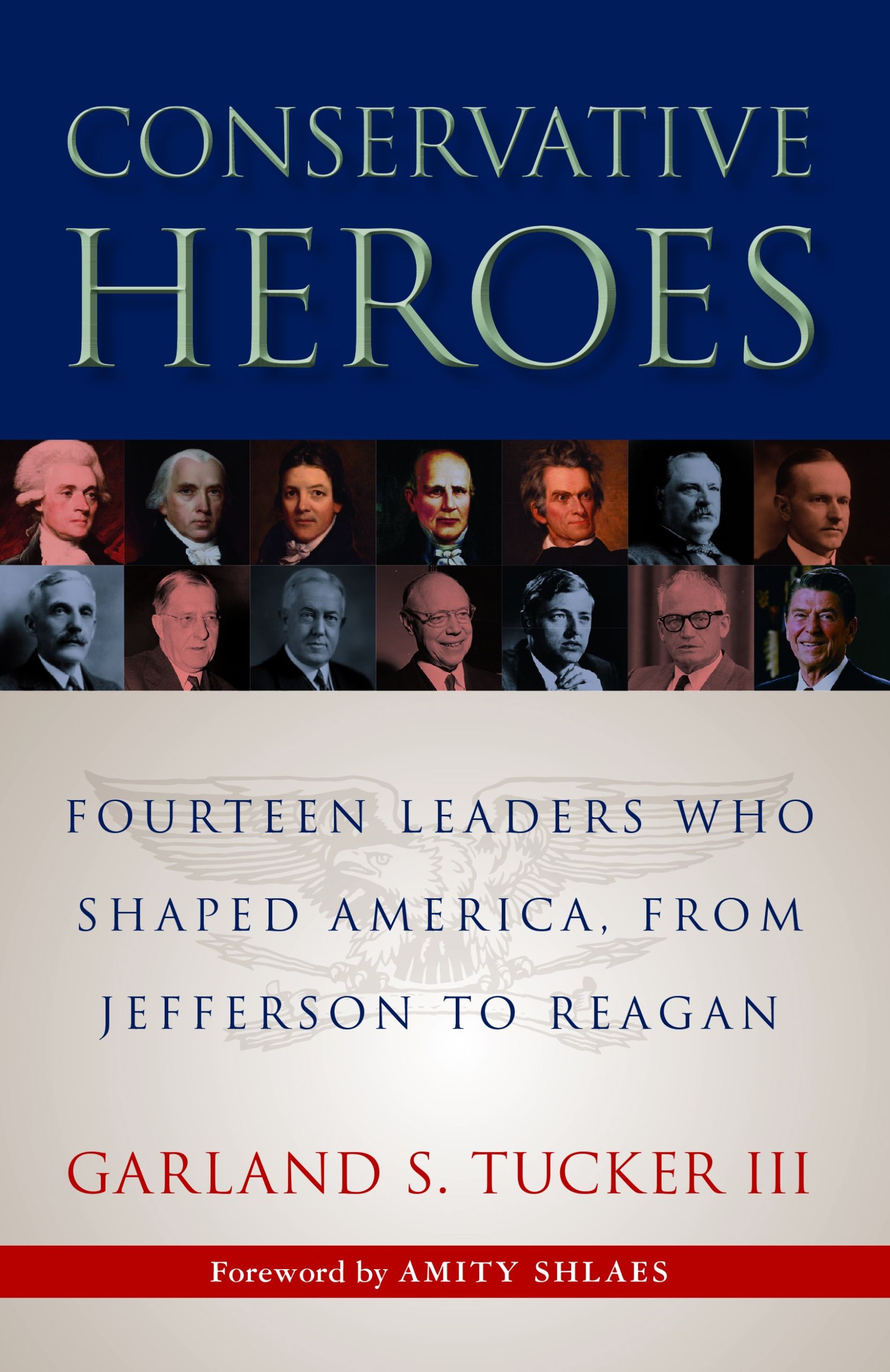 Ask a right-of-center thinker for a list of the nation’s most important conservative historical figures, and some names will jump to the top of the list. William F. Buckley. Ronald Reagan. Calvin Coolidge. From earlier times, Thomas Jefferson and James Madison.
Ask a right-of-center thinker for a list of the nation’s most important conservative historical figures, and some names will jump to the top of the list. William F. Buckley. Ronald Reagan. Calvin Coolidge. From earlier times, Thomas Jefferson and James Madison.
But what about Nathaniel Macon? Or Josiah Bailey? Few outside North Carolina know much about these two men. That’s one reason why Garland Tucker‘s latest book, Conservative Heroes, will prove to be a valuable resource for years to come. Tucker highlights all seven men listed above — plus seven more — who have helped shape American policy since the Founding era.
Among the lesser-known pieces of American history that attract Tucker’s attention is a 1937 document drafted largely by Bailey, a U.S. senator from North Carolina, in reaction to the rapidly expanding government spawned by Franklin Roosevelt’s New Deal. The product of Bailey’s work was known as “The Conservative Manifesto.”
Though often viewed as a historical footnote, this manifesto was an important milestone in the history of American conservatism — clearly articulating the importance of free enterprise, limited government, and separation of powers.
As for Macon, a fellow North Carolinian who served as speaker of the U.S. House of Representatives more than a century earlier during the Jefferson years, Tucker depicts a man devoted to “economy in government, strict constructionism, state sovereignty, and individual liberty.”
… Macon rose to offer a resolution to reduce funding for the army. Defenders of a larger appropriation, he said, “think borrowing five or six millions a trifling thing.” But such borrowing was “unjust,” he declared, in an admonition that conservatives have echoed down through the decades: “If we contract a debt we ought to pay it, and not leave it to your children. To be sure it is much easier to vote money than to lay taxes, because people do not directly feel the vote, but if taxed they must instantly know it.”
Tucker offers more highlights from his book June 29 during a lunchtime presentation for the John Locke Foundation’s Shaftesbury Society. A C-SPAN2 camera crew will be on hand to record the event for that channel’s “Book TV.”


